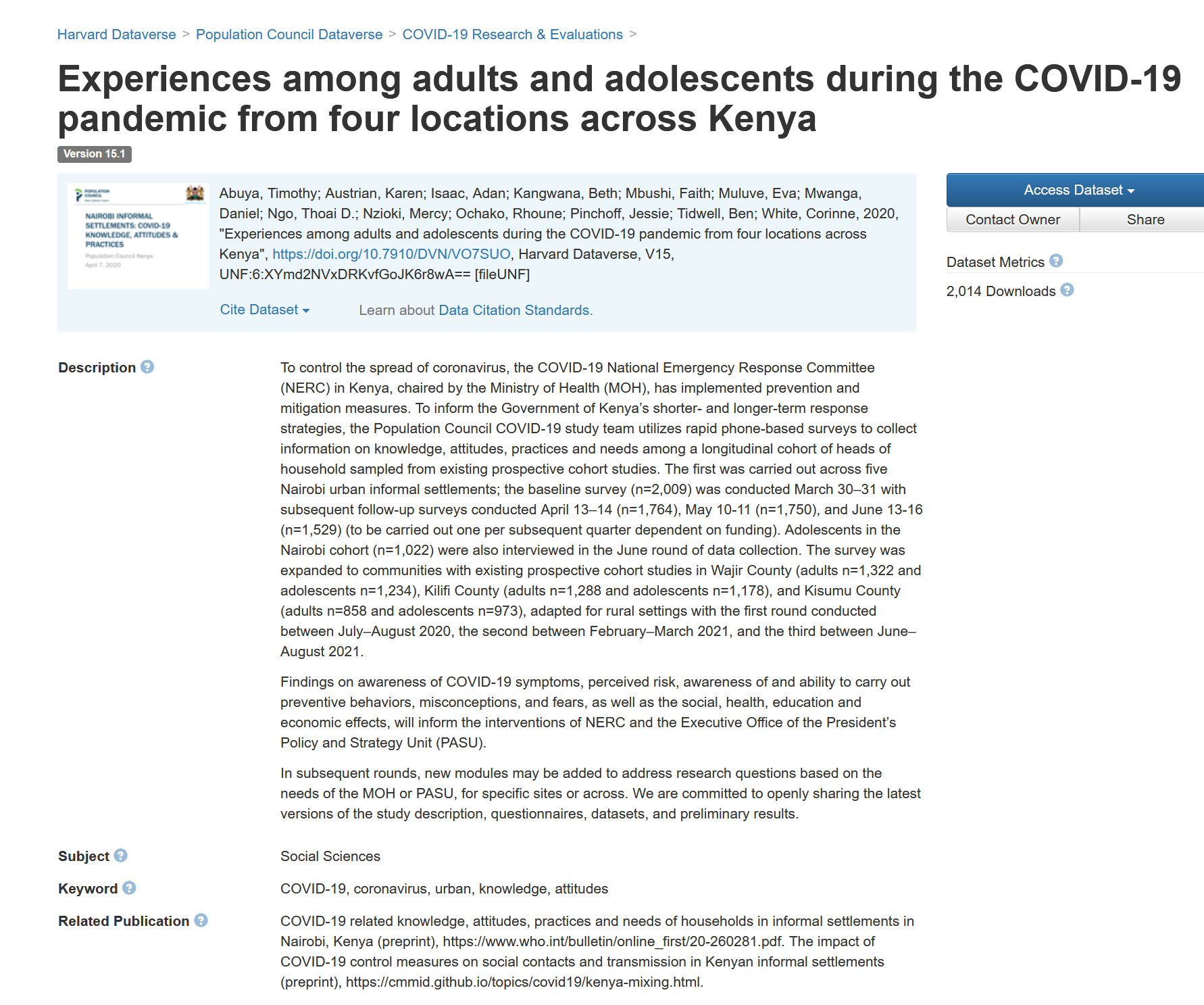To control the spread of coronavirus, the COVID-19 National Emergency Response Committee (NERC) in Kenya, chaired by the Ministry of Health (MOH), has implemented prevention and mitigation measures. To inform the Government of Kenya’s shorter- and longer-term response strategies, the Population Council COVID-19 study team utilizes rapid phone-based surveys to collect information on knowledge, attitudes, practices and needs among a longitudinal cohort of heads of household sampled from existing prospective cohort studies. The first was carried out across five Nairobi urban informal settlements; the baseline survey (n=2,009) was conducted March 30–31 with subsequent follow-up surveys conducted April 13–14 (n=1,764), May 10-11 (n=1,750), and June 13-16 (n=1,529) (to be carried out one per subsequent quarter dependent on funding). Adolescents in the Nairobi cohort (n=1,022) were also interviewed in the June round of data collection. The survey was expanded to communities with existing prospective cohort studies in Wajir County (adults n=1,322 and adolescents n=1,234), Kilifi County (adults n=1,288 and adolescents n=1,178), and Kisumu County (adults n=858 and adolescents n=973), adapted for rural settings with the first round conducted between July–August 2020, the second between February–March 2021, and the third between June–August 2021.
Findings on awareness of COVID-19 symptoms, perceived risk, awareness of and ability to carry out preventive behaviors, misconceptions, and fears, as well as the social, health, education and economic effects, will inform the interventions of NERC and the Executive Office of the President’s Policy and Strategy Unit (PASU)…
Abuya, T., Austrian, K., Isaac, A., Kangwana, B., Mbushi, F., Muluve, E., Mwanga, D., Ngo, T. D., Nzioki, M., Ochako, R., Pinchoff, J., Tidwell, B., & White, C. (2020). Experiences among adults and adolescents during the COVID-19 pandemic from four locations across Kenya. Harvard Dataverse.






